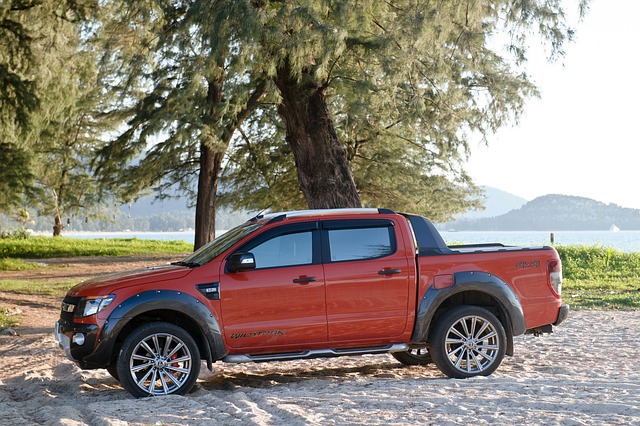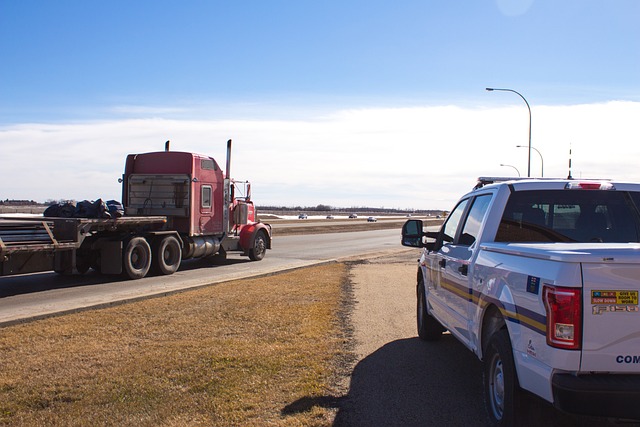Rental truck fleets face distinct insurance challenges due to high-value vehicles, diverse operational conditions, and increased risks of accidents, natural disasters, and theft in urban areas with heavy traffic. Effective solutions require comprehensive coverage including liability, collision, and cargo protection, along with specific endorsements for fleet management features. In a competitive market, rental fleet managers should leverage advanced technologies and personalized policies based on individual profiles to obtain cost-effective insurance for rented trucks. Bundling services and tailoring coverage options to high-risk areas can further optimize solutions.
In the dynamic world of transportation, rental truck fleets face distinct challenges that demand tailored insurance solutions. This article delves into the unique risks associated with these commercial vehicles, exploring why traditional insurance options may fall short. We uncover innovative approaches and competitive strategies to protect rental truck operators, offering insights on negotiating better rates and customized coverage. Discover how to navigate the landscape of insurance for rented trucks effectively, ensuring your fleet is shielded against unforeseen circumstances.
- Understanding the Unique Risks of Rental Truck Fleets
- Traditional Insurance Options for Rental Trucks: What Works and What Doesn't
- Unlocking Competitive Solutions: Innovative Approaches to Truck Fleet Insurance
- Strategies for Negotiating Better Rates and Customized Coverage
Understanding the Unique Risks of Rental Truck Fleets

Rental truck fleets face distinct challenges when it comes to insurance due to their unique operational dynamics. One of the primary risks is the high value of the vehicles and their frequent movement across various terrains and conditions. This increases the likelihood of accidents, natural disasters, and theft—all events that can lead to significant financial losses for fleet owners.
Additionally, rental trucks often operate in urban areas with heavy traffic and limited parking spaces, heightening the risk of collisions and damage. Insurance for rented trucks must account for these factors and provide comprehensive coverage, including liability, collision, and cargo protection. Such insurance solutions should also include specific endorsements for fleet management, such as trip routing, driver monitoring, and maintenance records, to ensure optimal safety and compliance.
Traditional Insurance Options for Rental Trucks: What Works and What Doesn't

Rental truck fleets face unique challenges when it comes to insurance, as their operations differ significantly from traditional fleet owners. While standard insurance options are available, they often fall short in addressing the specific risks associated with rental trucks. A comprehensive understanding of these risks is crucial for business owners to make informed decisions regarding their coverage.
Traditional insurance plans may provide liability coverage for accidents involving rented trucks, but they typically exclude certain high-risk scenarios. For instance, policies might not adequately cover situations where a rented truck is used for commercial purposes beyond the agreed-upon terms or if it’s involved in specialized transportation requiring specific endorsements. Moreover, general insurance plans often lack provisions for physical damage to the vehicles, which can be substantial due to the varying types of loads and driving conditions these trucks encounter. As such, rental fleet managers must carefully consider their options to ensure they are adequately protected.
Unlocking Competitive Solutions: Innovative Approaches to Truck Fleet Insurance

In today’s dynamic business landscape, rental truck fleet owners are increasingly seeking competitive insurance solutions to safeguard their investments and operations. The traditional approach to insuring rented trucks often falls short in terms of coverage and cost-efficiency, leaving room for innovative strategies. Unlocking these competitive solutions involves a deep understanding of the unique risks associated with truck rentals and leveraging advanced technologies to streamline processes.
By implementing data analytics, insurers can now offer tailored policies based on individual fleet profiles. This shift enables rental businesses to gain access to more comprehensive coverage options at competitive rates. Additionally, adopting digital platforms for policy management simplifies claims processing, enhances transparency, and provides real-time updates, ensuring a smoother experience for both insurers and customers. These innovative approaches not only meet the evolving needs of rental truck fleet owners but also foster a more robust insurance ecosystem.
Strategies for Negotiating Better Rates and Customized Coverage

When negotiating insurance rates for your rental truck fleet, it’s essential to understand that one-size-fits-all policies won’t cut it. Since these trucks are often on the road for extended periods and may be subjected to various driving conditions, customized coverage is key. Start by comparing quotes from multiple insurers who specialize in insurance for rented trucks. Look beyond the base price; delve into the details of each policy, scrutinizing deductibles, liability limits, and specific clauses that apply to your fleet’s unique needs.
During negotiations, highlight the safety measures and maintenance routines in place for your rental trucks. Insurers often offer discounted rates for businesses with a proven track record of safe driving practices and well-maintained vehicles. Additionally, bundling insurance policies with other business services can lead to significant savings. Don’t be afraid to ask for specific coverage options that cater to your fleet’s high-risk areas, such as cargo protection or comprehensive liability, ensuring you get the most tailored and cost-effective insurance solution for your rented trucks.
In navigating the complex landscape of insurance for rented trucks, understanding the unique risks associated with fleet management is key. By exploring both traditional options and innovative solutions, businesses can unlock competitive rates and tailored coverage. Implementing effective negotiation strategies further ensures that rental truck operators secure the best possible protection, allowing them to focus on providing top-notch services without constant worry. This comprehensive approach to insurance empowers folks managing fleets to thrive in today’s demanding market.
